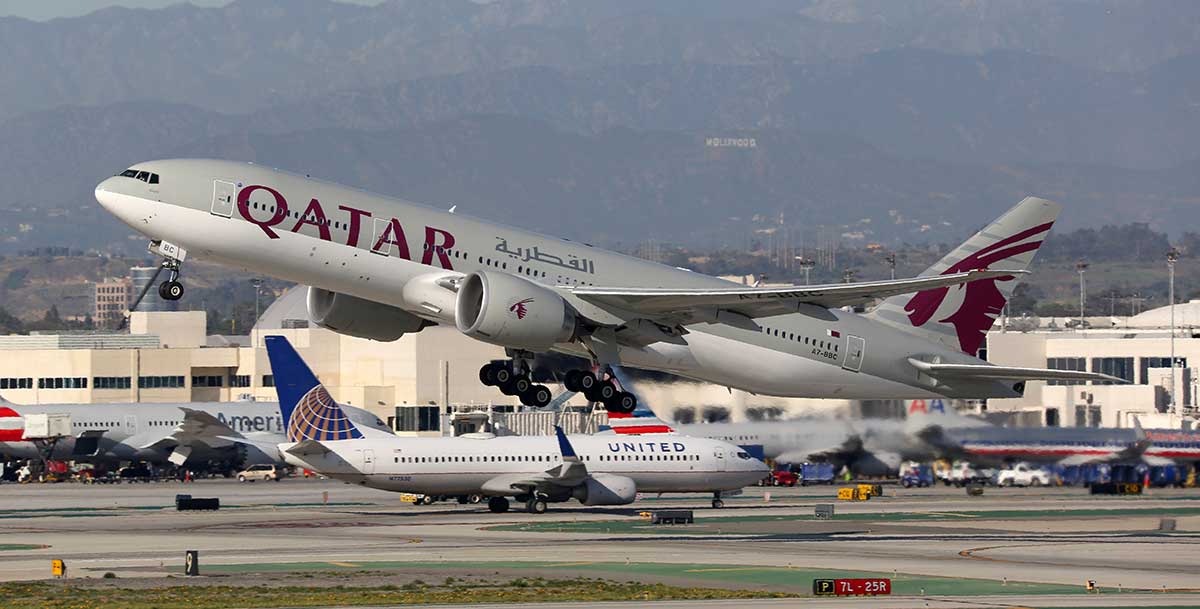Business
Indian Migrants Hit Hard by Qatar Crisis

Asian labourers work at removing a paved area at Souq Waqif in Doha
Photo Credit: Bigstock
The sanctions imposed on Qatar are pushing up food prices even as workers live in constant fear of layoffs.
The Arab boycott of Qatar is affecting the foreign migrant workers in the country, including Indians, amid falling crude oil prices and disruption of large construction projects in the country.
Saudi Arabia, United Arab Emirates, Bahrain and Egypt cut diplomatic ties with Qatar, accusing the latter of sponsoring extremist groups across the region, particularly in Syria and Libya. The sanctions imposed on Qatar are causing an increase in food prices even as the workers live in constant fear of layoffs.
Food Prices Going-up
In July, the cost of food and beverage went up 4.5 per cent from a year ago, as compared to the increase of 2.4 per cent in June, registering the fastest rate of increase since 2014, Khaleej Times reported. Dairy products, vegetables and other perishable food items, which were imported by road across the land border with Saudi Arabia before the embargo was put in place, are now being flown or shipped in from other countries.
That is creating troubles for workers from India and Nepal, who typically earn 800 rial ($219.78) a month, Reuters reported, adding that these workers constitute about 90 percent of Qatar’s 2.7 million population. Several Indians and Africans employed in the hospitality industry in Doha were asked to return to their countries last week because hotels are witnessing a drop in occupancy due to the boycott.

Photo Credit: Bigstock
Ajit, who works as an electrician in Qatar, is worried about his future in the country, he told AFP. He joined his new job seven months ago and earns 1,000 riyals a month (USD 275), almost three-fourth of which he sends home. He is worried that he won’t be do that anymore.
“If this continues, there will be problems for people like us, the workers,” he told the agency. The price of rice, tomatoes and onions has doubled in some supermarkets because of which Ajit has restricted himself to one meal a day.
Workers at the country’s construction sites are worried too since most of the construction material comes from other Gulf countries. Like many other South Asian labourers, Ravi Shankar, an Indian construction worker, is worried about not being paid on time. “Everyone inside the camp is panicking and scared about what lies ahead,” he told Middle East Eye.
Qatar’s 2022 soccer World Cup
Also affected are the labourers working for Qatar’s 2022 soccer World Cup constructions. In the last three years, Andhra Pradesh and Telangana sent 30,000 labourers as part of the workforce needed for these projects. Bhim Reddy of Migrant Rights Council said, “Those who went as World Cup labourers had done so quickly without back-up resources. Most of them also had to surrender their passports to employers. They will have to stay back even if the conflict deepens.”
Indian workers in Qatar also include Telugu-speaking women who work as house-helps, accounting for 25 per cent of the immigrants in the country.
Remove Kafala
Sharan Burrow, the General Secretary of International Trade Union Confederation (ITUC), has spoke about the plight of migrant workers, pointing out that those who want to leave the country have to get their employer’s permission, and many workers are still paying off debts to recruitment agents who arranged their passage abroad.
According to Burrow, as an “immediate humanitarian step” the Qatar government should remove the kafala (a system wherein an unskilled labourer needs to have an in-country sponsor) exit-permit requirement so that people are not trapped in Qatar and can go home if they wish to.




1 Comment